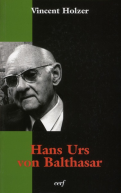
Un impératif de communication
Collection Passages
480 pages - janv. 2005
61,60€
Contrainte du droit et enthousiasme pour la Révolution de 1789 : tel est le paradoxe qui anime la philosophie du droit d'Emmanuel Kant issue des textes de la troisième « Critique ». L'impératif de communication qui sous-tend cette problématique surgit de la prise en compte de la déstabilisation de l'humanité qui vient d'advenir avec la Terreur. La question est alors celle du progrès, et Kant a le courage d'annoncer « prophétiquement » que ce « signe d'histoire » est révélateur d'un progrès irréversible pour l'histoire de l'humanité. Si aigus que puissent être à l'avenir les conflits et les guerres, ils ne pourront jamais remettre en question pour lui cette certitude que « la voix du droit saura toujours se faire entendre ». La philosophie du droit kantienne, porteuse d'un défi de communication, ne peut éviter une confrontation avec un renouveau dans la philosophie du langage puisque sa « juri-diction » court toujours le risque d'une « juri-fiction ».
--
Respect for the law and enthusiasm for the French Revolution: this is the paradox that animates Emmanuelle Kant’s philosophy of law, which transpires from the text of his third ‘Critique’. The necessary communication underlying the problematic arises from its taking into account the destabilization of humanity that had just occurred under the reign of Terror. The question is that of progress; and Kant has the courage to proclaim ‘prophetically’ that this ‘sign from history’ is a revealing factor of irreversible progress in the history of humanity. As bitter as future wars and conflicts may be, they will never be able to call into question the conviction that ‘the voice of law will always be heard’. Kant’s philosophy of law, which brings with it a challenge of communication, cannot avoid confrontation with a renewal in the philosophy of language because its ‘juri-diction’ would always be in danger of a ‘juri-fiction’.
--
Respect for the law and enthusiasm for the French Revolution: this is the paradox that animates Emmanuelle Kant’s philosophy of law, which transpires from the text of his third ‘Critique’. The necessary communication underlying the problematic arises from its taking into account the destabilization of humanity that had just occurred under the reign of Terror. The question is that of progress; and Kant has the courage to proclaim ‘prophetically’ that this ‘sign from history’ is a revealing factor of irreversible progress in the history of humanity. As bitter as future wars and conflicts may be, they will never be able to call into question the conviction that ‘the voice of law will always be heard’. Kant’s philosophy of law, which brings with it a challenge of communication, cannot avoid confrontation with a renewal in the philosophy of language because its ‘juri-diction’ would always be in danger of a ‘juri-fiction’.
- Dimensions : 145x235x30
- ISBN : 9782204076005
- Poids : 704 grammes
DANS LA CATÉGORIE
Médire des cons
Histoire culturelle d'un snobisme populaire
de Luca Di Gregorio
238 pages - juin 2024






